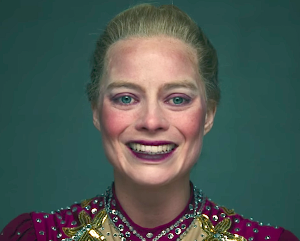Arm-twisting reporters so they don’t ask talent about touchy subjects is a shadowy part of celebrity press interviews but has popped into the open for the movie “I, Tonya.” The drama with bursts of deadpan comedy stars Margot Robbie portraying ice skater Tonya Harding during the real-life crime perpetrated by Harding’s entourage that maimed her main rival in 1994.
“The disgraced figure skater [the real-life Tonya Harding] was dumped by her own publicist/agent for demanding that journalists pay fines if they dare ask about the kneecapping Nancy Kerrigan suffered ahead of the 1994 Winter Olympics,” says a “New York Post” newspaper article by Jessica Sager. That’s a big “ask” since the movie revolves around the incident that the real-life Harding now doesn’t want to discuss.

As the third edition of book “Marketing To Moviegoers” says, “In some instances, top talent insists that journalists promise in writing to adhere to ground rules that limit the scope of questions and restrict what journalists can report. The taboo subjects can be talent’s political or religious beliefs, family life, or a past unpleasant incident. Reporters scheduled to interview Angelina Jolie or Tom Cruise have been presented with such written agreements, which often make journalists promise not to report ‘in a manner that is disparaging, demeaning, or derogatory.’ The intention of the agreements is to keep the press focused on star’s unreleased film. Versions of such agreements may also specify that no bloopers from electronic interviews be disseminated.”
Regarding the movie, domestic theatrical distributor Neon collected an impressive $6.7 million in box office from the so-far narrow release of “I, Tonya.”
I must confess that I love the marketing for “I, Tonya.” The image of the tarted-up face of star Robbie with excessive cosmetics and the forced smile is common for ice skaters trying to look radiant while being physically exhausted. But Robbie’s labored smile also suggests a deeper pain, which nicely advances the marketing campaign’s theme of an underclass girl battling many demons. The face gives a human element to attract moviegoers. Meanwhile, the trailer navigates the fine line between drama and comedy, in which Robbie’s deadpan voiceover says Americans want heroes to love and also hate.
The movie presents a sympathetic portrayal of the real-life Harding, which is itself controversial. Says a “New York Post” opinion article, “Perversely, Harding has reemerged at a most opportune moment, shilling her fake victimhood in the shadows of true feminist warriors,” complains Maureen Callahan.
Related content:
Leave a Reply